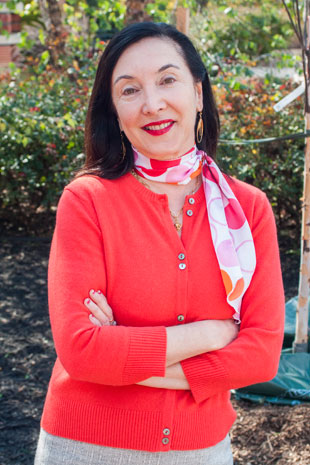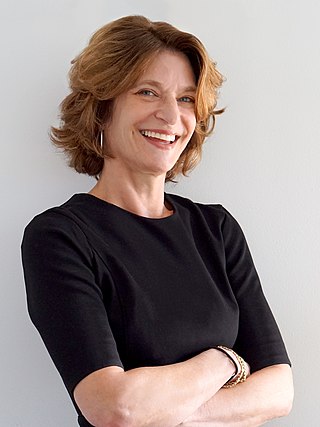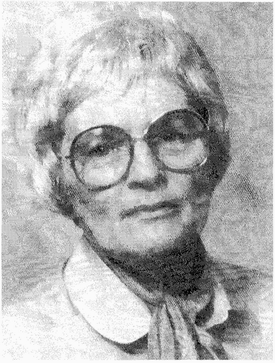Related Research Articles
Linda B. Smith is an American developmental psychologist internationally recognized for her theoretical and empirical contributions to developmental psychology and cognitive science, proposing, through theoretical and empirical studies, a new way of understanding developmental processes. Smith's works are groundbreaking and illuminating for the field of perception, action, language, and categorization, showing the unique flexibility found in human behavior. She has shown how perception and action are ways of obtaining knowledge for cognitive development and word learning.
Jerome Kagan was an American psychologist, who was the Daniel and Amy Starch Research Professor of Psychology at Harvard University, as well as, co-faculty at the New England Complex Systems Institute. He was one of the key pioneers of developmental psychology.
Andrew N. Meltzoff is an American psychologist and an internationally recognized expert on infant and child development. His discoveries about infant imitation greatly advanced the scientific understanding of early cognition, personality and brain development.

Laura-Ann Petitto is a cognitive neuroscientist and a developmental cognitive neuroscientist known for her research and scientific discoveries involving the language capacity of chimpanzees, the biological bases of language in humans, especially early language acquisition, early reading, and bilingualism, bilingual reading, and the bilingual brain. Significant scientific discoveries include the existence of linguistic babbling on the hands of deaf babies and the equivalent neural processing of signed and spoken languages in the human brain. She is recognized for her contributions to the creation of the new scientific discipline, called educational neuroscience. Petitto chaired a new undergraduate department at Dartmouth College, called "Educational Neuroscience and Human Development" (2002-2007), and was a Co-Principal Investigator in the National Science Foundation and Dartmouth's Science of Learning Center, called the "Center for Cognitive and Educational Neuroscience" (2004-2007). At Gallaudet University (2011–present), Petitto led a team in the creation of the first PhD in Educational Neuroscience program in the United States. Petitto is the Co-Principal Investigator as well as Science Director of the National Science Foundation and Gallaudet University’s Science of Learning Center, called the "Visual Language and Visual Learning Center (VL2)". Petitto is also founder and Scientific Director of the Brain and Language Laboratory for Neuroimaging (“BL2”) at Gallaudet University.

Kathy Hirsh-Pasek is the Stanley and Debra Lefkowitz Professor of Psychology at Temple University in Philadelphia, where she directs the Temple University Infant Language Laboratory. She is the author of 14 books and over 200 publications on early childhood and infant development, with a specialty in language and literacy, and playful learning.
Judith F. Kroll is a Distinguished Professor of Language Science at University of California, Irvine. She specializes in psycholinguistics, focusing on second language acquisition and bilingual language processing. With Randi Martin and Suparna Rajaram, Kroll co-founded the organization Women in Cognitive Science in 2001. She is a Fellow of the American Association for the Advancement of Science (AAAS), the American Psychological Association (APA), the Psychonomic Society, the Society of Experimental Psychologists, and the Association for Psychological Science (APS).
Elissa Lee Newport is a professor of neurology and director of the Center for Brain Plasticity and Recovery at Georgetown University. She specializes in language acquisition and developmental psycholinguistics, focusing on the relationship between language development and language structure, and most recently on the effects of pediatric stroke on the organization and recovery of language.
Susan E. Carey is an American psychologist who is a Professor of Psychology at Harvard University. She studies language acquisition, children's development of concepts, conceptual changes over time, and the importance of executive functions. She has conducted experiments on infants, toddlers, adults, and non-human primates. Her books include Conceptual Change in Childhood (1985) and The Origin of Concepts (2009).

Nora S. Newcombe is the Laura H. Carnell Professor of Psychology and the James H. Glackin Distinguished Faculty Fellow at Temple University. She is a Canadian-American researcher in cognitive development, cognitive psychology and cognitive science, and expert on the development of spatial thinking and reasoning and episodic memory. She was the principal investigator of the Spatial Intelligence and Learning Center (2006-2018), one of six Science of Learning Centers funded by the National Science Foundation.

Susan Goldin-Meadow is the Beardsley Ruml Distinguished Service Professor in the Departments of Psychology, Comparative Human Development, the college, and the Committee on Education at the University of Chicago. She is the principal investigator of a 10-year program project grant, funded by the National Institute of Child Health and Human Development, designed to explore the impact of environmental and biological variation on language growth. She is also a co-PI of the Spatial Intelligence and Learning Center (SILC), one of six Science of Learning Centers funded by the National Science Foundation to explore learning in an interdisciplinary framework with an eye toward theory and application. She is the founding editor of Language Learning and Development, the official journal of the Society for Language Development. She was President of the International Society for Gesture Studies from 2007–2012.
Amanda Woodward is Dean of the Division of the Social Sciences and the William S. Gray Professor of Psychology at the University of Chicago. Her research investigates infant social cognition and early language development including the understanding of goal-directed actions, agency, theory of mind, and learning from social partners. She is a fellow of the American Academy of Arts and Sciences.
Richard N. Aslin is an American psychologist. He is currently a Senior Scientist at Haskins Laboratories and professor at Yale University. Until December, 2016, Dr. Aslin was William R. Kenan Professor of Brain & Cognitive Sciences and Center for Visual Sciences at the University of Rochester. During his time in Rochester, he was also Director of the Rochester Center for Brain Imaging and the Rochester Baby Lab. He had worked at the university for over thirty years, until he resigned in protest of the university's handling of a sexual harassment complaint about a junior member of his department.
Roberta Michnick Golinkoff holds the Unidel H. Rodney Sharp Chair in the School of Education at the University of Delaware and is also a member of the Departments of Psychological and Brain Sciences and Linguistics and Cognitive Science.
Patricia Marks Greenfield is an American psychologist and professor known for her research in the fields of culture and human development. She is a Distinguished Professor of Psychology at the University of California in Los Angeles and served as president of the International Association for Cross-Cultural Psychology from 2014–2016.

Karen E. Adolph is a psychologist and professor known for her research in the field of infant motor development. She is the 2017 recipient of the Kurt-Koffka medal from the University of Giessen. Previous honors include the 1999 APA Boyd McCandless Award and 2002 American Psychological Foundation Robert L. Fantz Memorial Award. She has served as the President of the International Congress on Infant Studies. Adolph and her colleagues developed computerized video coding software, called Datavyu, and state-of-the-art recording technology to observe and code behavior. A related project, Databrary, provides a repository for video recordings of behavior and encourages open data sharing across research labs. Adolph is a recipient of a MERIT Award from the National Institutes of Child Health and Human Development in support of her innovative research.

Frances K. Graham was an American psychologist and Professor of Psychology at the University of Delaware, where she was elected to the National Academy of Sciences in 1988.

Patricia J. Bauer is Asa Griggs Candler Professor of Psychology at Emory University. She is known for her research in the field of cognitive development, with a specific focus on how children develop their earliest memories and how their memory is influenced by parents, peers, and the environment around them. Her research has explored the phenomenon of childhood amnesia and how social, cognitive, and neural changes relate to the development of autobiographical memory.
Rachel Keen is a developmental psychologist known for her research on infant cognitive development, auditory development, and motor control. She is Professor Emeritus of Psychology at the University of Virginia.
Lisa Feigenson is Professor of Psychological and Brain Sciences at Johns Hopkins University and co-director of the Johns Hopkins University Laboratory for Child Development. Feigenson is known for her research on the development of numerical abilities, working memory, and early learning. She has served on the editorial board of Cognition and the Journal of Experimental Psychology: General.
Alejandrina Cristia is an Argentinian linguist known for research on infant-directed speech, daylong audio recordings of children's diverse linguistic environments, and language acquisition across cultures. Cristia is interested in how phonetic and phonological representations are formed during infancy and their interactions with other linguistic formats and cognitive mechanisms. She holds the position of Research Director of the Laboratoire de Sciences Cognitives et Psycholinguistique (LSCP) at the Paris Sciences et Lettres University.
References
- ↑ P
- ↑ "Fellows". Cognitive Science Society. Archived from the original on 26 September 2018. Retrieved 30 June 2017.
- ↑ "Acoustical News—USA". The Journal of the Acoustical Society of America. 103 (5): 2241–2244. 1998-05-01. doi:10.1121/1.422690. ISSN 0001-4966.
- ↑ Bell-Berti, Fredericka; Zhang, Yang; Iverson, Paul (2008-05-01). "Gold Medal of the Acoustical Society of America". The Journal of the Acoustical Society of America. 123 (5): 3483–3486. Bibcode:2008ASAJ..123.3483B. doi:10.1121/1.2934343. ISSN 0001-4966.
- ↑ "APA Award for Distinguished Scientific Contributions". APA. Retrieved 2 December 2018.